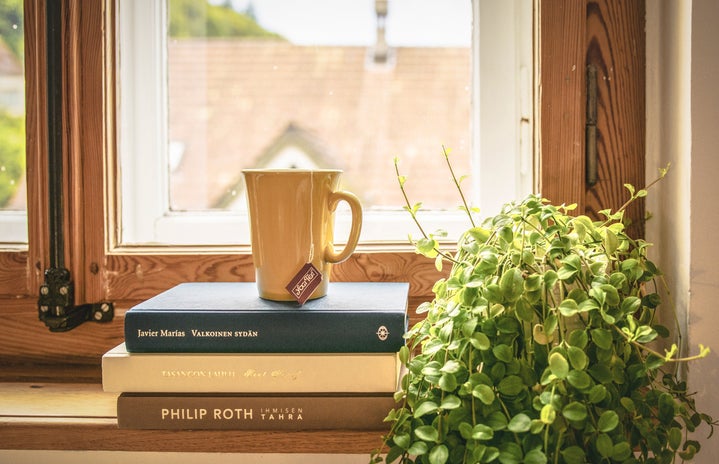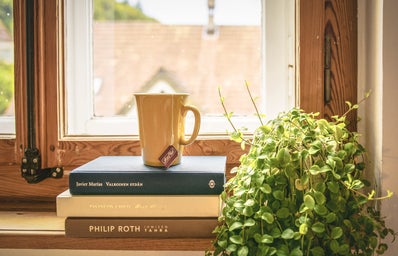Emma Watson recently took the stage again on gender equality and introduced her feminist book club, called “Shared Shelf.” I can’t help but get excited at the notion that diverse representation will finally be brought to life in literature, but perhaps this shift isn’t as easy, or even as revolutionary, as we’d like to think.
There is no doubt that female authors and novels with complex female characters are not hard to come by in the literary world, once people are finally free of high school and even college curriculum. The difficulty lies in the other forms of media, more specifically TV shows and movies.
All feminists know the “Bechtel Test”:
1. The movie has to have at least two women in it…
2. Who talk to each other…
3. About something besides a man.
What does that mean for a Netflix feminism club? Well with the recent surge of female leads on TV, often referred to as the “Golden Age of Feminism,” (others’ words, not mine) there are more options out there. Some would think this list would be easy to make, but a closer look reveals that more options leave more room for error. We can all agree that Sex in the City is a flawed attempt at feminism, but are we ready to hold shows like Orange is the New Black to the same standard? The fact is, media is far behind where it should be, and the philosophy that feminists have won a small battle in the creation of these shows is incredibly misguided. So here are a few questions you should ask yourself as a feminist watching some of your favorite girl power shows like Scandal and Girls, that already pass tests like the Bechtel test.
1. What are their major character traits and what are their interests and hobbies?
This is a big one for me, and one of the reasons why I agree that Sex in the City, although a wonderful stepping-stone to leading female characters in TV, will never be regarded as feminist. The interests that seemed to bind the friendships in the show were men and sex. There were certainly other things, but this fact dominated any other complex or controversial thing in their lives. Buffy kicked butt and still had time to go to high school. Not exactly the typical high school girl experience that is often portrayed in the media.
2. Do they reinforce or challenge stereotypes about their gender, race, etc.?
I’m all about the mostly female cast in Orange is the New Black, but the writers sometimes find themselves falling down the rabbit hole of stereotypes and tropes that don’t belong in such a diverse and compelling cast of characters. Viola Davis is a strong willful attorney in How to Get Away with Murder, but shows weakness and vulnerability in her personal and home life. That makes a complex and compelling female character. That’s what makes her real and powerful, not her grip over men like many (anti-feminists) seem to think.
3. How much power do they have as individuals and within their intimate relationships, social group, workplace or organization?
Often times this question sounds as if it is asking how powerful the female characters are, but that is not necessarily the point of the question. In Orange is the New Black, each character knows who she is, what she likes, and what she doesn’t. They own their sexuality, backgrounds and roots. It is not only wonderful to watch on screen, but is also a great representation of how amazing women actually are.
4. How is their wardrobe used to define them?
This goes beyond wardrobe, but appearance in general. The media has twisted and manipulated women’s perceptions of what they should look like, largely because of how they look in TV shows and movies. Look at Kerry Washington in Scandal. Sure, she’s a beautiful actress playing a pretty powerful role, and to everyone’s surprise, she doesn’t wear extremely revealing clothing. She dresses like a professional, realistically for the position that she’s in. That means people like her, not because she’s hot, but because she is more than her appearance.
5. Who is the intended audience?
This is a very tricky question, in my opinion. In most cases, feminist shows are intended for feminist viewers, but I think the next big push in true equality is trying to get non-feminists on the viewership radar. Jessica Jones is a great example of pleasing not only the feminist viewer, but possibly one who happens to be a Marvel Maniac! Who doesn’t love superheroes? If we continue to try to please those that already agree with change, progress will just get slower and slower.
So is there hope for a feminist Netflix club? I say there is! All these options are by no means perfect, but are very viable options for a category such as this. There isn’t that much in the media, let alone Netflix. But with more of a push, there may soon be no such thing as the label “feminist media,” because it will be the norm.


